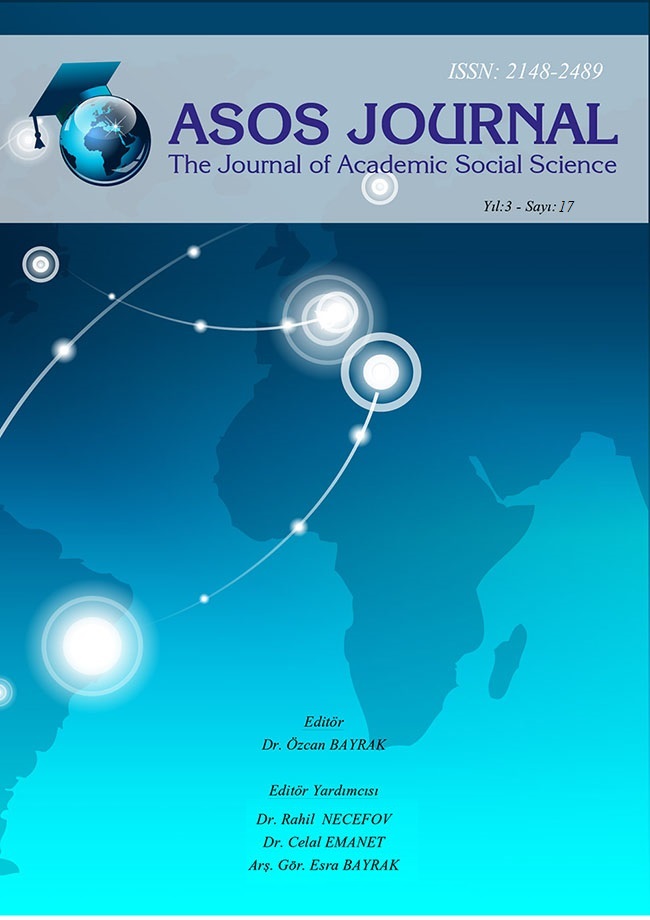Author :
Abstract
Bu çalışmada, Asaf Hâlet Çelebi ve Necip Fazıl Kısakürek’in Mansur başlıklı şiirleri, metin merkezli bir yakın okumayla karşılaştırılmıştır. Çelebi’nin Mevlevîlikle ilgisi, Mevlânâ ve Mevlevîlik adlı kitabı ile birlikte değerlendirildiğinde şiirde Mevlevilikteki semâ’ ayinindeki ritüellere gönderme yapıldığını düşündürmektedir. Şiirde sesi duyulan diyalojik öznenin, söylemlerinden hareketle “ölmeden evvel ölen bir Mevlevî dervişi”ni imlediği ve bu dervişin Mevlevî sema’ındaki dervişlerin ney/ sûr sesiyle dirilmeleri gibi “[bütün sesleri bir araya toplayan] büyük kös”ün [=sûrun] sesiyle yeniden dirildiği sonucuna ulaşılmıştır. Kısakürek’in şiiri ise metnin sunduğu imkânlar ışığında üç farklı anlam düzeyinde yorumlanmıştır: Birinci anlam düzeyinde Mansûr’un, Şeyh Şibli’yi galeyana gelen halktan korumaya çalıştığı; ikinci anlam düzeyinde Mansûr’un “gül” ve “çiçek” nesneleri vasıtasıyla bile olsa “atmak” eylemine iştirak eden Şeyh Şibli’ye incindiği; üçüncü anlam düzeyinde ise Mansûr i
Keywords
Abstract
In this study, poems titled “Mansur” written by Asaf Halet Çelebi and Necip Fazıl Kısakürek were compared with text-based close reading. When the Mevleviyeh interest of Çelebi is considered together with his book named “Mevlana and Mevleviyeh”, it is thought that in his poem he refers to rituals in whirling ceremonies of Mevleviyeh. From the discourse of dialogical subject, it is concluded that he implies “a Mevlevi dervish who dies before actual death” and this dervish resurges with the sound of big kettledrum [=sûr] (which gathers all the sounds at one place) as the dervishes in Mevlevi whirling resurge with the sound of reed/sûr. The poem of Kısakürek was interpreted at three different content level in the light of opportunities provided by the text. It was concluded that in the first content level Mansur tries to protect Şeyh Şibli from agitated people, in the second content level Mansur is offended towards Şeyh Şibli who participates in the action of “throwing” even through “r
